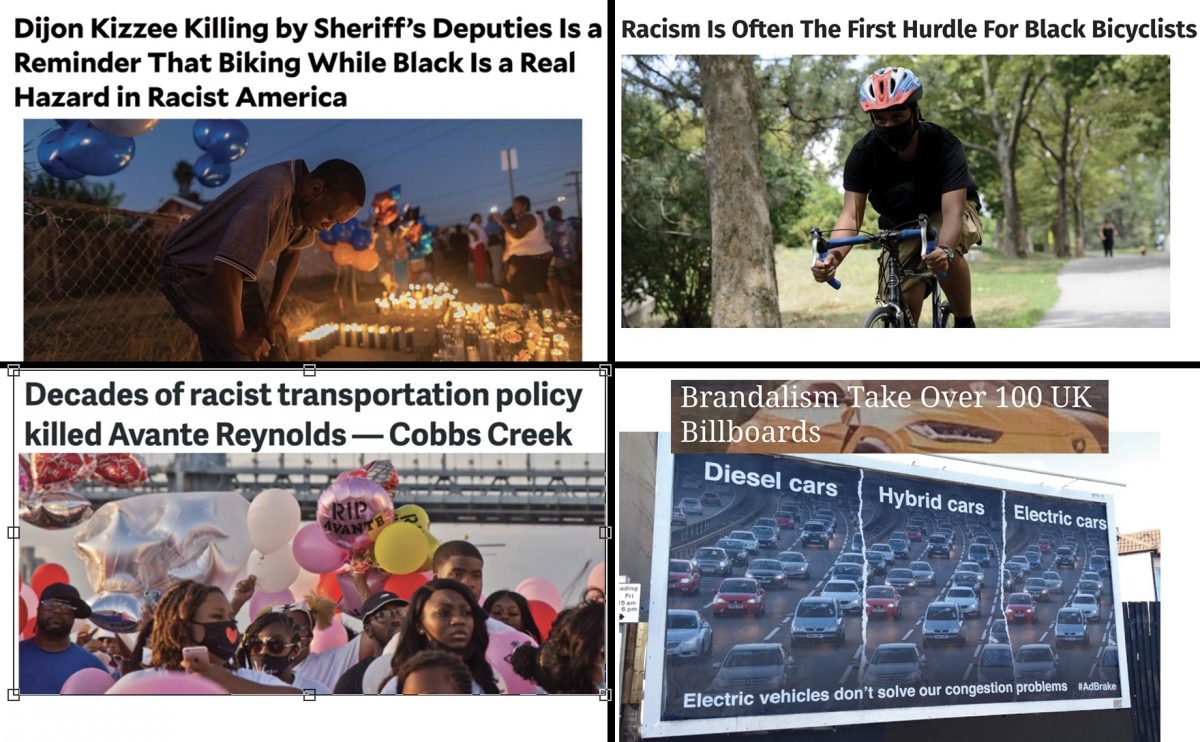Welcome to the week.
Here are the most noteworthy items we came across in the past eight days.
Dijon Kizzee: Los Angeles police said a bicycle code violation is what prompted an altercation that ended up with them shooting and killing a Black man named Dijon Kizzee. It’s just the latest tragic example of how police enforcement of traffic laws is highly biased against Black people and it has renewed calls for taking traffic enforcement responsibilities out of police hands.
Neighbors against freeways: The Eliot Neighborhood has published strong opposition to the I-5 Rose Quarter project based on historical research that lays bare the evil of 1950s freeway builders and implores current leaders from doubling down on their mistakes.
Redlined and deadly: A community in Philadelphia is speaking out about the racist transportation planning that contributed to the death of 25-year-old Avante Reynolds.
Bike to school: New York City’s chief financial officer has proposed a cycling plan for high school students that calls for free bike share membership, and implementation of protected bike lanes to make up for a lack of public transit ridership amid the pandemic.
Tour de Finance: As you enjoy the daily battles of le Tour, learn more about the economics behind the event in this article from The Hustle.
Advertisement
That’ll cost you: Local bike shop owner Erik Tonkin has made waves in the bike industry for his proposal that new bikes should come with an added assembly fee that ranges from $40 to $300 per bike.
E-bike boom is national: The story is the same in every corner of the country: Electric bikes are absolutely flying off shelves — especially when customers want to carry cargo without all the extra exertion.
Infrastructure and race: It’s not just racist police officers that make cycling scarier for Black, Indigenous and people of color — the neighborhoods where they live often have few bike lanes and bike shops.
“Pedestrian infrastructure” myth: Portland-based City Observatory contributor Joe Cortright says much of what transportation agencies label as “pedestrian infrastructure” is often just a way to maintain and expand access for car and truck drivers.
ODOT is terrible, part 3,657: An audit by the Oregon Secretary of State found that ODOT stacked a powerful committee with freight interests and failed to get input from cycling, walking, and disability rights advocates.
Anti-car PR: A UK-based group called Brandalism is running an ad campaign that exposes the climate change, congestion, cultural and safety impacts of car abuse.
— Jonathan Maus: (503) 706-8804, @jonathan_maus on Twitter and jonathan@bikeportland.org
— Get our headlines delivered to your inbox.
— Support this independent community media outlet with a one-time contribution or monthly subscription.


